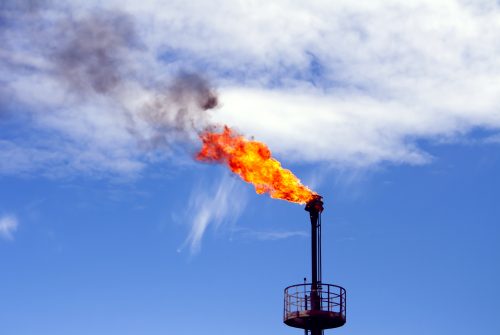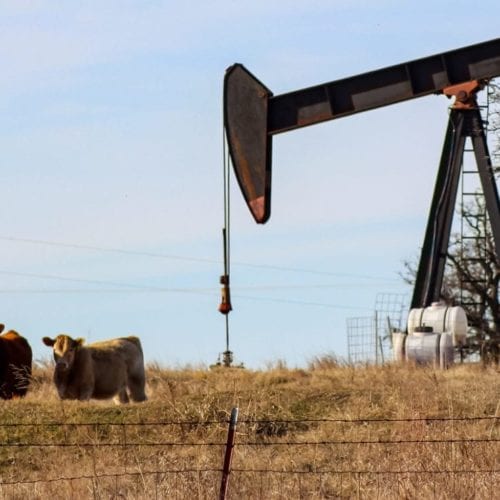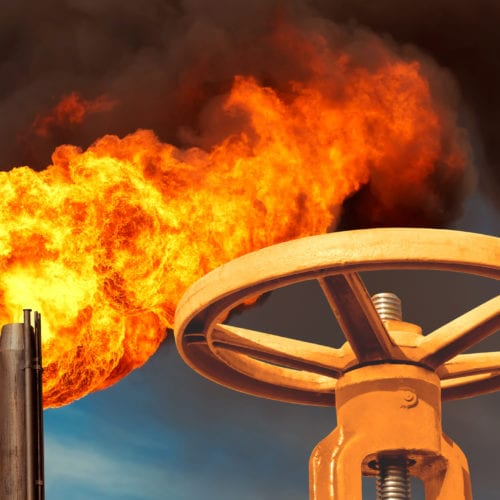
Tackling Methane Leakage from Oil and Gas
Having lived the last seven years in the United States, I am still Dutch and European at heart. During the past few months, I have watched with growing excitement as Europe has been gathering momentum around the European Green Deal. Europe’s progressive politics, buffeted by mass social movements across the continent, are leading to a host of well-conceived and equitable solutions for combatting a diversity of environmental ills. This is the best opportunity we have had to swiftly and decisively take action on building a better, greener economy in Europe.
However, conspicuously absent from the broader European Green Deal agenda are provisions to tackle methane leakage, a potent climate pollutant with rising emissions.
What is Methane and Why Does It Matter?
Methane is a greenhouse gas with a short-term climate impact 84 times more potent than CO2. It is also the primary component of natural gas. Our ability to meet Paris targets and avoid exceeding 1.5°C of warming depends on the global oil and gas industry’s willingness to reduce methane emissions, both intentional and accidental, from the gas value chain. Methane escaping across oil and gas production, processing, transmission, and distribution totals over 6.7 billion tons of CO2 equivalent each year, equal to 16 percent of all human-made CO2 emissions.
Fortunately, experts consider this sector to be the “low-hanging fruit” of methane abatement, because technical solutions to fix these leaks largely already exist and many are cost-effective. However, in absence of a clear signal to act, much of the oil and gas industry has failed to address these emissions with the urgency and at the scale needed during the climate emergency.
The European Green Deal presents an unprecedented opportunity for Europe to lead in tackling methane emissions with an outsized global impact. As the world’s largest net importer of natural gas, Europe’s unique market position gives it disproportionate sway in the global gas market, influencing major gas suppliers including Russia, Algeria, Qatar, and the United States.
Forward-thinking European oil and gas companies have recognized the need to act, and have made public methane reduction commitments: as part of the Oil and Gas Climate Initiative, the CEOs from several of Europe’s leading majors—including BP, Equinor, ENI, Shell, and Total—have committed to a “near-zero methane” future, with an ambition to reach 0.20 percent methane intensity (methane emissions divided by gas production) by 2025. Some of these companies have also signed on to the Methane Guiding Principles, committing to continued methane reductions and transparency across their operations.
Ambitious Regulation is Essential
It is clear that voluntary commitments, championed primarily by the leading players, cannot be the full solution to the methane challenge. Ambitious regulation is essential to make these commitments—including methane intensity targets—enforceable requirements and to extend these requirements to operators, including national oil companies, that are currently turning a blind eye to the methane threat.
The European Green Deal must be used as a vehicle to set the bar for methane emissions performance for operators within the EU, and also for companies importing gas into European markets. Such a performance standard, backed up with consistent, verifiable emissions monitoring and reporting, can catalyze widespread methane emissions abatement in the global oil and gas industry.
Large-Scale Mobilization is Necessary and Possible
Critics point out that methane performance standards will be difficult to enforce without robust, preexisting measurement and reporting standards. However, market mechanisms designed to certify gas produced with lower methane emissions, coupled with voluntary reporting programs including that established by UN Environment’s Oil and Gas Methane Partnership, can pave the way by increasing reporting and transparency across gas value chains.
Perfect cannot be the enemy of good. The climate will not wait for the promise of magical technology that will measure and capture methane; we must act now, with the tools that we have on hand. COVID-19 has provided important lessons on the need to take bold steps in the face of a collective, urgent threat.
Think about it this way: focusing only on CO2’s contribution to climate change, and ignoring methane, is like focusing on curing a chronic illness while ignoring a severed artery. In other words, it is essential that we tackle methane emissions as part our climate change mitigation strategy. As other world leaders abdicate their responsibility on climate action, Europe can, and must, lead the way. Including ambitious methane performance standards for the oil and gas industry in the European Green Deal is the right step, at the right time.

